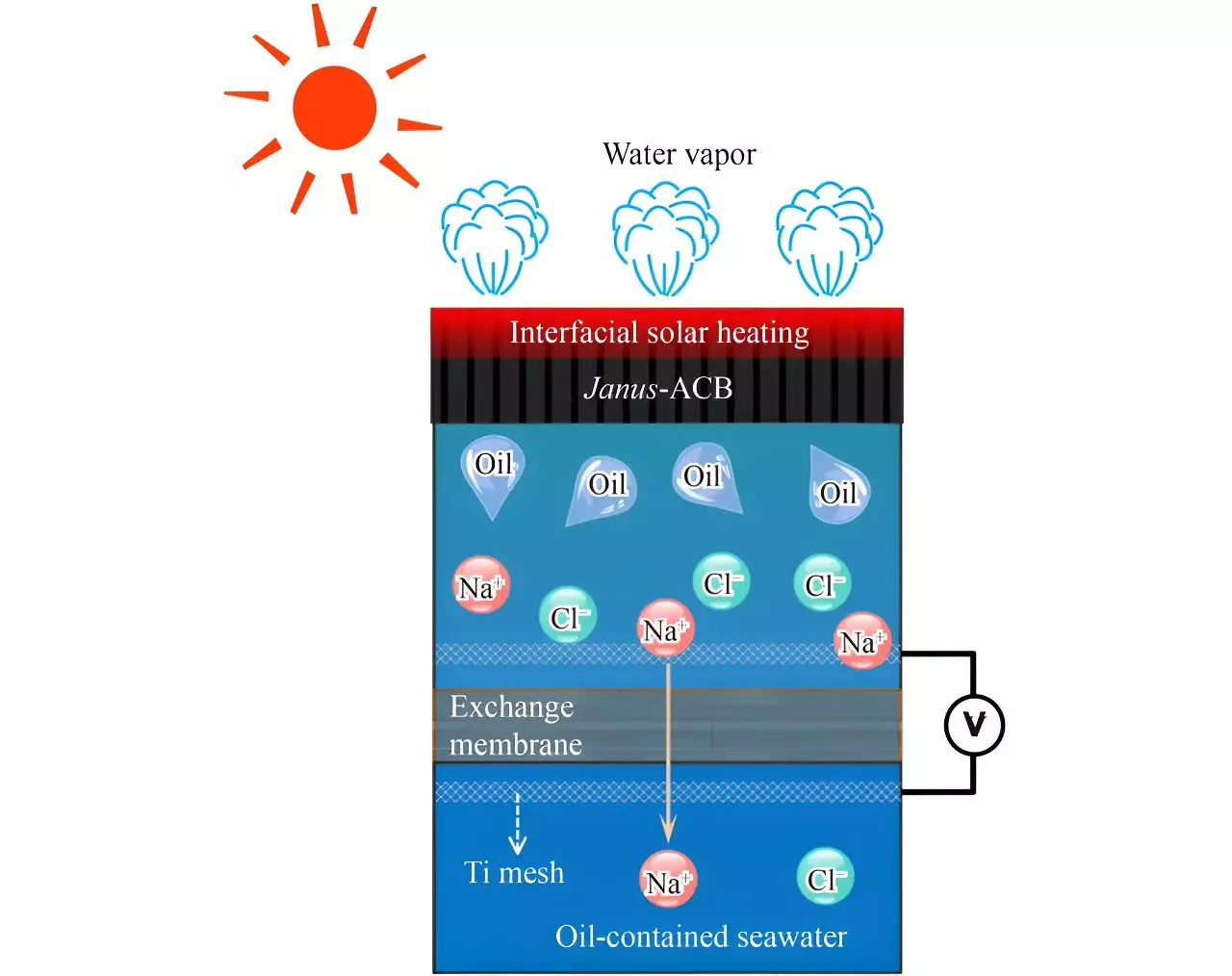The recent nuclear wastewater discharge from Japan has reignited concerns over marine pollution, particularly oil pollution. Oil pollution, a significant threat to marine ecosystems, stems from various sources such as ship spills, offshore drilling, and leaks from oil pipelines. Devastating consequences include smothered fish, seabirds coated with oil, and disrupted photosynthesis in aquatic plants. Additionally, heavily oil-contaminated environments harm coral reefs—an economic blow to tourism and fisheries. To combat this issue on a large scale, it is crucial to develop an efficient, environmentally friendly, and cost-effective oil separation technique.
Researchers in China have proposed an innovative concept for separating oil-water mixtures using solar thermal energy. Unlike traditional methods with low efficiency and high energy consumption, this new protocol harnesses solar energy directly, resulting in minimal environmental impact. Furthermore, it can be employed on any oil-contaminated seawater surface with sunlight, eliminating geographical limitations.
One remarkable feature of this approach is its ability to generate electricity while achieving high oil removal efficiency (>99%). The long-term stability of the process augments its feasibility for large-scale marine oil pollution control. The foundation of this breakthrough lies in a smartly designed wood absorber, which offers cost and environmental advantages. Through carbonization, the wood absorber exhibits excellent light adsorption capability, making it an ideal material for this separation technique. The team has also incorporated the Janus structure, widely used in oil-water separation, to enhance the device’s performance. Even after repeated test cycles, no apparent degradation in performance has been observed.
Although the results of this research are promising, the team acknowledges the need for further studies and considerations. Future case studies will take into account various factors such as weather conditions and photothermal conversion performance, ensuring the practicality of the oil-water separation process. The research team remains cautious about the challenges that lie ahead, emphasizing that there is still much progress to be made.
The development of an environmentally friendly and cost-effective oil-water separation technique is of utmost importance in addressing marine pollution. With the revolutionary use of solar thermal energy and the innovative design of a wood absorber, researchers in China have presented a groundbreaking solution. By using solar energy directly, this method minimizes energy consumption and secondary pollution while achieving high oil removal efficiency. The versatility of this technique allows for its implementation on any oil-contaminated seawater surface, providing a scalable approach to marine oil pollution control. The future holds immense potential for optimizing this method through in-depth case studies and the consideration of various influential factors. With these advancements, we can mitigate the ecological and economic consequences of oil pollution, ensuring a sustainable future for marine ecosystems.


Leave a Reply